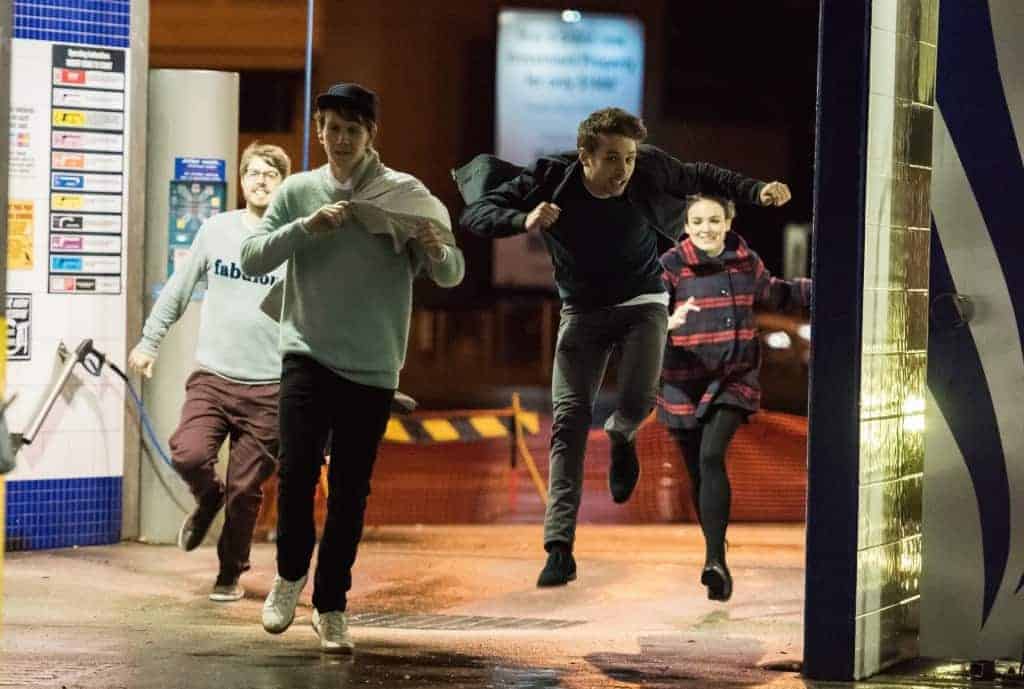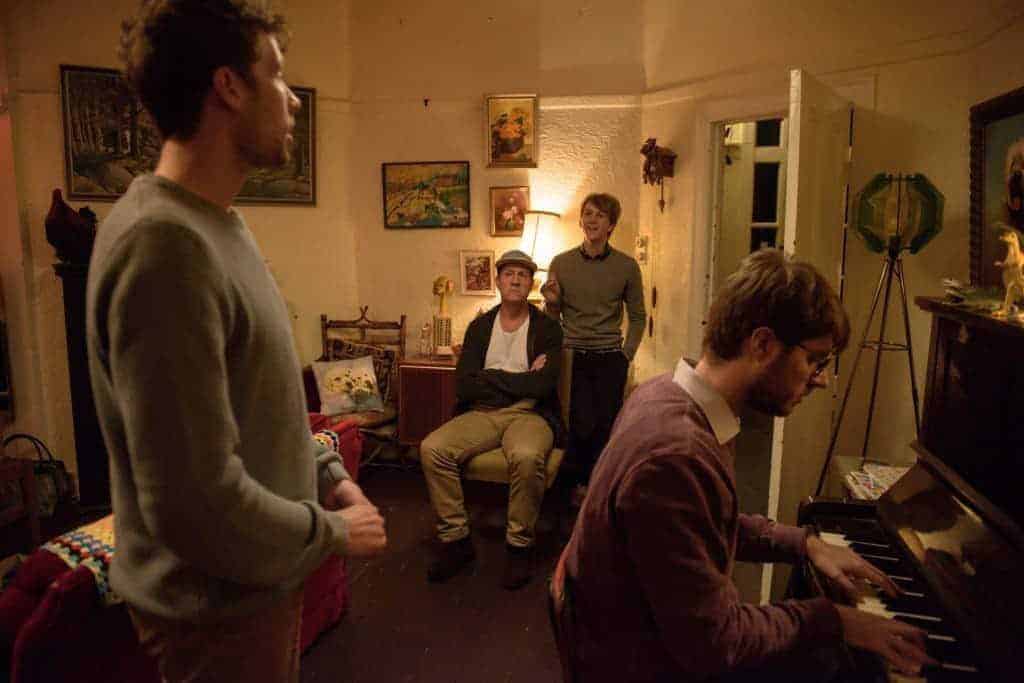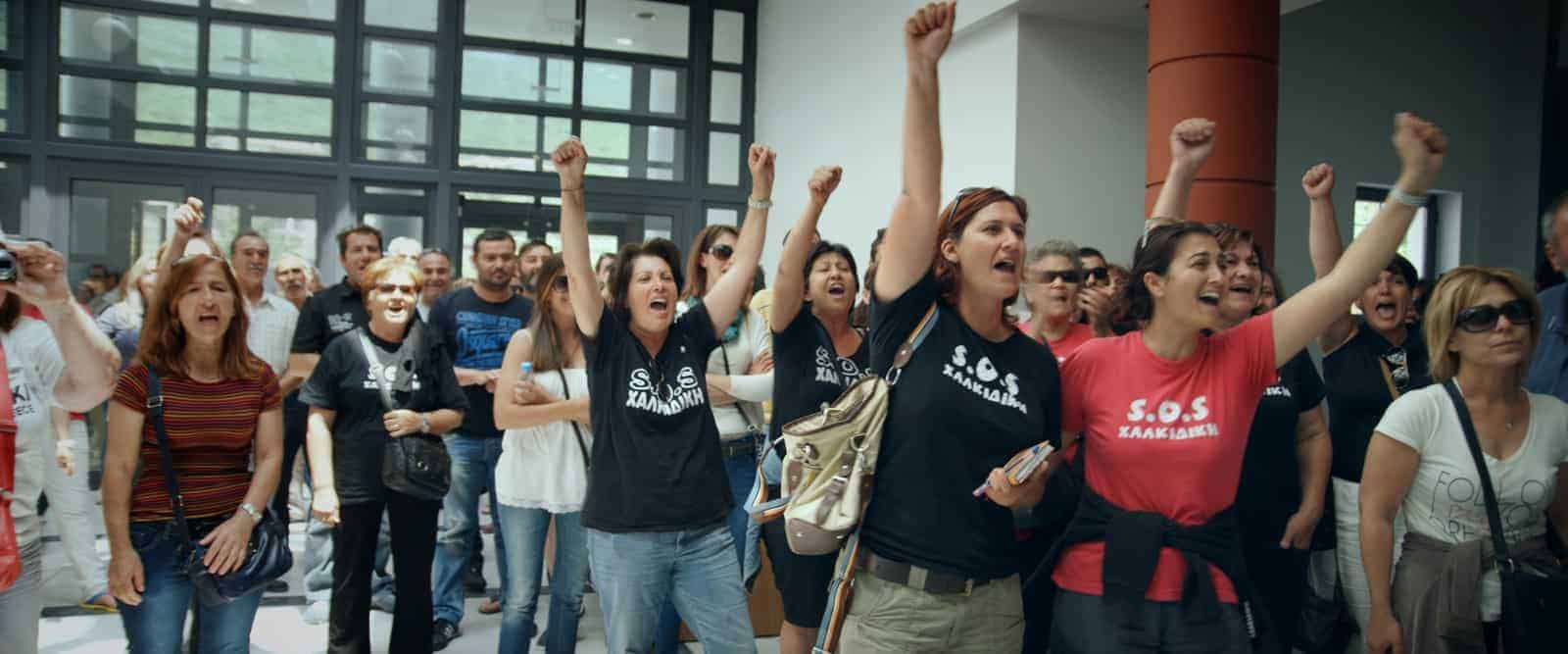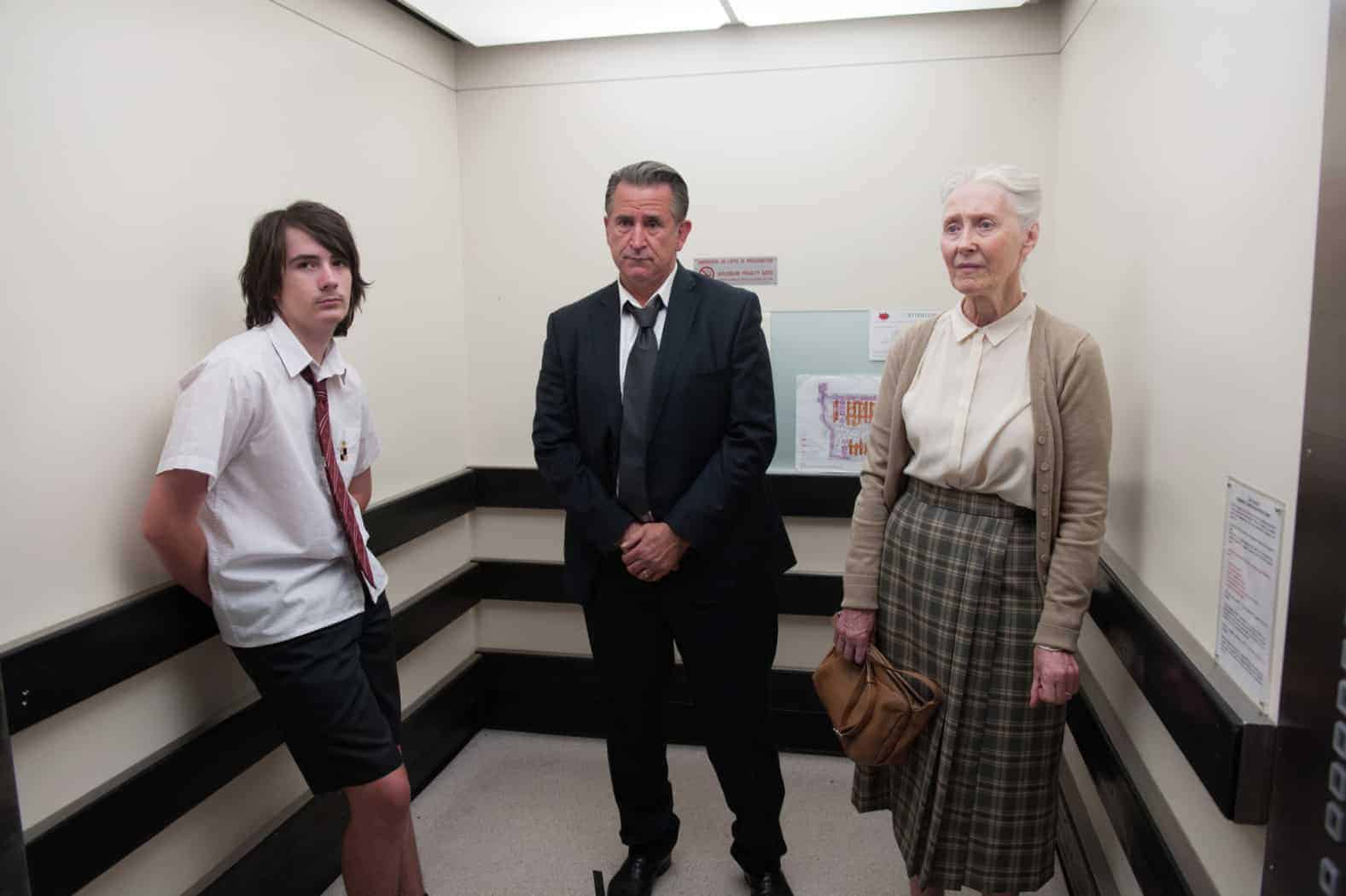Josh Thomas and Matthew Saville discuss the making of the third season of their groundbreaking series Please Like Me.

“When I hear people talk about making television or film, and they talk about what they made as intended, I sort of don’t believe them,” commented Josh Thomas, who writes, stars in, and executive produces Pivot’s Please Like Me, now in its third season. “There’s just so many hundreds of decisions and so many variables that then come together to make this one thing. Actors do their thing. The director’s doing his thing. Network has notes. The editor decides how to edit together. I just don’t ever think that I’m in control of how it’s going to turn out.”
[clickToTweet tweet=”‘There’s so many hundreds of decisions and variables that come together to make this one thing.'” quote=”There’s so many hundreds of decisions and variables that come together to make this one thing.”]
It’s hard to tell sometimes whether Thomas simply isn’t interested in discussing process or if he’s just unaware of how unique the show’s process is. “With Please Like Me,” explained director Matthew Saville, “There’s an amorphous division of responsibility. There will be times when Josh will direct. We have this great producer, Todd Abbott, who is on set there every day, quite unique as a producer. Even though I get the credit as a director, if you came on set, you’d see three of us actually doing it all together.”
[clickToTweet tweet=”‘It’s kind of easy to direct good scripts.’ – Matthew Saville” quote=”It’s kind of easy to direct good scripts.”]
Saville credited the writing for the show’s success. “It’s kind of easy to direct good scripts,” he said admiringly. “Josh is a really great writer. It’s all semi-autobiographical. Tom is actually Tom, and John the dog is actually John. So you don’t really have to direct them that much because they sort of know how to be themselves pretty easily. So you just go, ‘What would you guys do?’ ”

Please Like Me is defined by its impeccable attention to detail: every frame is key to setting the tone and developing the characters and their relationships. Not a moment is wasted. For instance, in the first season, the title sequence for every episode involved Josh cooking. Thomas explained, “Josh is sort of emotionally stunted so we thought that it would be good to have him cooking so you could see that he’s not a bad guy. I think people are likable when they’re cooking. Now, the title sequence for some of the episodes turns into these sort of monotonous things that people have to get done in their day.”
[clickToTweet tweet=”‘Please Like Me is just snap snap snap. ‘- Matthew Saville” quote=”‘Please Like Me is just snap snap snap. ‘- Matthew Saville”]

The density of the storytelling makes Please Like Me endlessly re-watchable. “To me, that’s how you write something reasonable,” he said. “You want as much as possible to have everyone have something going on in their lives or that they’re interested in. It makes the actor’s day a lot easier if they’ve got something that they know they’re meant to be thinking about. It’s also just more engaging to watch.” Thomas noted that the hardest scene to shoot this season was also its densest: a dinner-table scene in episode two. Arnold is trying to discuss how to come out to his parents, but carb-phobic Tom is fixated on the fact that Arnold is eating bread. Because there was so much going on in the scene with each of the characters, it was a challenge to capture all of these nuances both in the shoot and in the edit.
Thomas is keenly aware of the show’s overall pacing. Saville explained, “Please Like Me is just ‘snap snap snap.’ Josh has this thing where he’s just not interested unless someone’s talking.” One of the best episodes of season two was “Scroggin,” where Josh and his mum go on a camping trip in Tasmania. Thomas recalled, “That episode doesn’t have a lot of plot in it, just talking. But the episode before had just a fuckin’ shit load of stuff happen. We had a character die. I think you have to earn those episodes where people just hang out.”
[clickToTweet tweet=”‘You have to earn those episodes where people just hang out.’ – Josh Thomas” quote=”You have to earn those episodes where people just hang out.”]
The first thing Thomas asks himself when writing is, “ ‘Is it believable?’ This commitment to realism extends to every aspect of the show. “When you’ve got a character like mum,” Thomas explained, “She’s quite challenging — navigating how silly she’s going to be. She’s bipolar. So sometimes she’s really manic; sometimes she’s really depressed. Sometimes, Debra the actor will come in like, ‘Yeah, she’s manic, so she can wear this silly hat.’ It’s like trying to judge whether or not the character would actually do that. And I have an instinct for that. That’s why I’m involved in so much, to make sure it’s consistent across the board.”
Thomas admitted, though, that sometimes the show strains believability. In the third season premiere, Arnold sets up a fancy, romantic dinner for Josh in a warehouse, complete with a string of lights. “I guess Arnold could have done it,” rationalized Thomas, “and I can believe he would have done it. But it’s just so incredible looking. We were having meetings about that, and it was like if you can’t carry this stuff in that you need to make this, by yourself, like one person, then it’s too much stuff. It can’t be too ridiculous. There could’ve be big barrels of fire around. We could have edited in actual fireflies if we wanted to. It’s just deciding how much is believable that Arnold can do while still being an incredibly beautiful thing to look at.”
[clickToTweet tweet=”‘It’s a comedy, so we need the coverage so we can fool around with the rhythm on the edit.'” quote=”It’s a comedy, so we need the coverage so we can fool around with the rhythm on the edit.”]
Though the writing and production of the show are crucial to its success, Thomas and Saville contend that it’s really made in the edit. Saville noted, “It’s a comedy, so we need the coverage so we can fool around with the rhythm on the edit. When you look at the rough cuts of that show, it’s just un-watchable. I shouldn’t say that. But it’s verbal comedy, as well, a little bit of slapstick here and there. It really does rely on editing to make it work.”
Thomas, who helps edit every episode, called learning to edit his version of film school: “It’s where I’ve learned absolutely everything.” One of the key takeaways for him was that “Things can get distorted on a film set in so many different ways. On the day, you’ll shoot something, and you’ll watch it, and you’ll think it’s really great. And then you get into the edit, and that take that you thought was really good was actually really over-the-top and doesn’t fit into the show.”
[clickToTweet tweet=”‘We shoot really fast. Sometimes, we shoot 12 minutes in a day.’ – Josh Thomas” quote=”We shoot really fast. Sometimes, we shoot 12 minutes in a day.”]
Please Like Me has a shoestring budget, so as Thomas noted, “We shoot really fast. Sometimes, we shoot 12 minutes in a day.” Saville has a different view of why they move so quickly: “With ‘Please Like Me,’ especially with Josh and with Tom — he’s going to kill me for saying this, but he’d have to admit it himself — he gets bored easily. I’m sure he’d like to find a way to make a show with no camera or lights. I think he’d love to have someone in the corner with an iPhone. Quite often we’ll be doing a lighting setup and he’ll be like, ‘Matt, how long is this going to take?’ He’ll just get bored. And when he gets bored, he gets mischievous as well, so you want to try to keep him as busy as you can.”
All episodes of Please Like Me are now available on Hulu.
Read more: review of the current season of Please Like Me (Season 3) >>
Read more: review of the second season of Please Like Me >>
Read more: review of the first season of Please Like Me >>

